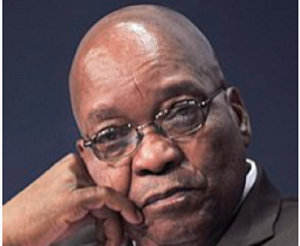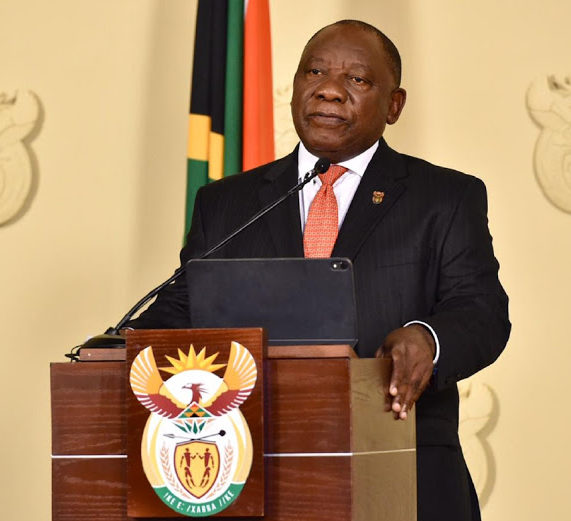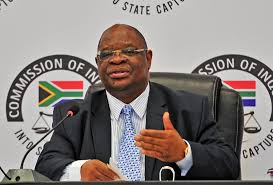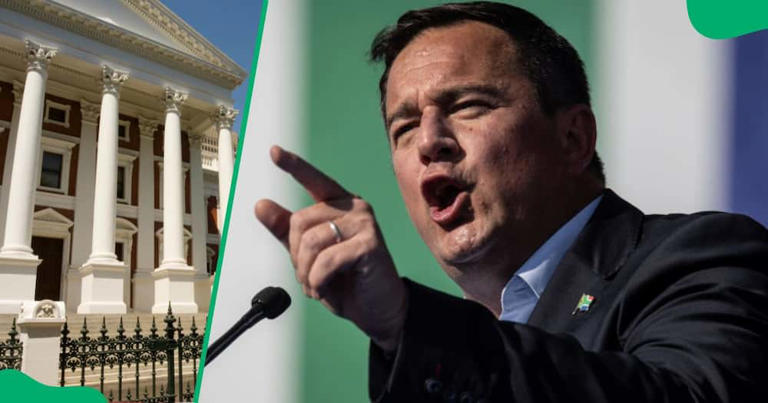Behind the ‘Zuma tsunami’ in South Africa

Elected, accused of corruption – fired, accused of rape – acquitted, elected president, accused of corruption again – denied again, ousted, imprisoned for contempt of court – freed, barred from becoming an MP.
For most politicians almost any of these punches would have proved fatal to their career, but not for South Africa’s Jacob Zuma.
Like a resolute prize-fighter, the 82-year-old former president may have been knocked down on occasions, but he has never been knocked out.
During the recent election campaign he has been doing his familiar dance and the results of last week’s vote show he still wields huge influence.
He is at the helm of a new party that took on the African National Congress (ANC), gaining 15% of the vote.
The results have been humiliating for the ANC, the liberation movement Mr Zuma once led, as it has lost its outright parliamentary majority for the first time in 30 years – and the “Zuma tsunami”, as it has been dubbed, is partly responsible.
In the centre of the coastal city of Durban, the main city in KwaZulu-Natal province, Mr Zuma’s smiling face beams down from virtually every street lamp on green-and-black election posters of his recently formed party, uMkhonto weSizwe (MK) or Spear of the Nation.
There is no doubting the octogenarian’s exalted status here in his heartland, where he is respected for upholding his cultural and traditional Zulu beliefs.
He is also lauded for his role as a peace broker during political violence in the early 1990s, which almost derailed the country’s transition to democracy.
And more than 20 years ago, he was credited with bringing voters in KwaZulu-Natal from the Zulu-nationalist Inkatha Freedom Party to the ANC.
This year he was able to take his loyal supporters with him to MK, which is named after the ANC’s former armed wing and holds huge political symbolism because of its role in fighting for the end of white-minority rule.
The launch of MK’s manifesto, a week before the 29 May election at a packed 40,000-seater stadium, was a clear signal that “uBaba” (father), as Mr Zuma is known, was back.
The sea of his supporters braving the scorching heat chanted: “Zuma! Zuma!”
One shouted: “Uyinsizwa nxamala”, which loosely translates from Zulu as “a fearless warrior who never backs down”.
On election day, arriving at his polling station, a modestly built primary school without flushing toilets, the MK party leader was greeted by hundreds of people who called out his clan names: “Msholozi, Nxamalala, Maphum’ephethe”.
The former president waved and smiled at them before entering a classroom to vote.
As he left the polling station, his supporters sang a pro-Zuma song in Zulu made popular several years ago when the former president was accused of corruption.
One refrain they belted out translates as: “What has Zuma done? You’re influenced by propaganda from so-called white monopoly capital.”
Many politicians can rely on a loyal core of backers, but Mr Zuma’s ability to genuinely connect with the poor and marginalized is what sets him apart.
And this may explain his enduring popularity despite facing numerous scandals and damning accusations.
Six years ago, it seemed that his luck had finally run out when he was forced from the presidency, following a litany of corruption allegations, which he denied.
Cyril Ramaphosa replaced him as president and Mr Zuma became a political pariah and a damaged brand.
Then three years ago, things got worse: he was sent to jail after being found in contempt of court for failing to give evidence and testify at a judicial investigation into corruption during his nine-year term as president.
His arrest in July 2021 sparked the deadliest riots since the end of white-minority rule in 1994 and led to the deaths of more than 300 people.
He had been sentenced to 15 months, but President Ramaphosa released him after he had served only three, in an attempt to placate him and his angry supporters.
Just a few weeks ago, it seemed Mr Zuma was dealt another blow after being legally barred from standing as a member of parliament because of his conviction.
But none of that seemed to matter to voters, and his propensity to outsmart his political opponents was evident, which the ANC acknowledged.
“Jacob Zuma is a force to be reckoned with in South African politics… we never underestimated him,” admitted ANC secretary-general Fikile Mbalula, as he reflected on his party’s dismal performance.
Despite his suspension from the ANC, Mr Zuma remains a member of the party that brought an end to apartheid.
With no formal schooling and a modest upbringing, his anti-apartheid activism eventually saw him jailed for 10 years at the notorious Robben Island prison along with Nelson Mandela.
After the ban against the ANC was lifted by the white government in 1990, Mr Zuma returned from exile and rose through the party’s ranks. In 1999 he was appointed deputy president of the country.
He was then implicated in corruption allegations in 2005, which he denied, involving a 1999 arms deal and was fired by then-President Thabo Mbeki. This case continues to drag on – and he still faces charges over the multi-billion dollar scandal.
In December of that year, he was accused of raping the daughter of a party comrade. He admitted to having sex with the woman, who was HIV positive, but said the encounter was consensual.
Mr Zuma invited ridicule when he said he had had a shower after sex to prevent HIV transmission and believed that a healthy man was unlikely to catch HIV from a woman.
The following year, he was acquitted of rape.
He then fought his way back to the top of the ANC and became president in 2009.
Mr Zuma remained in the role until he was forced to resign in 2018 after intense pressure from his own party.
This came after he was accused of being involved in a process known as “state capture”, where he allowed a family of wealthy businessmen – the Guptas – to wield massive political influence.
Mr Zuma and the Gupta brothers have dismissed the allegations of corruption as a fabrication.
The former president and his supporters blame his successor, Mr Ramaphosa, for his downfall.
And now he might want to settle a score with his rival.
With coalition talks under way, the MK party has made it clear that it will only form a partnership with the ANC if the president resigns.
Freshly emboldened by his party’s performance, Mr Zuma threw the first punch on Saturday, alleging irregularities.
“Nobody must declare results, don’t provoke us, don’t start trouble,” he said on the eve of the announcement of the final election results.
The electoral commission has strongly denied these allegations.
Police are now on alert because of the risk of potential unrest following Mr Zuma’s comments.
Yet despite this acrimonious situation and relationship, the ANC has not ruled out a coalition with the MK party.
“We are talking to everybody who is prepared to form a government with us,” Mr Mbalula said.
It all shows Mr Zuma’s remarkable ability to remain in the ring.
Source: bbc.com





